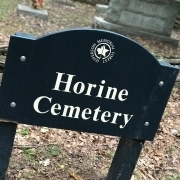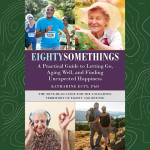5 Strategies for Aging, or Rather Dying, Gracefully | Healthy Aging Series: Part 20
OK really? Who wants to learn how to die gracefully?! 5 ways to die gracefully? I either lost you or hooked you with the title of this blog. And since you’re reading it, I assume I hooked to you.
I read a good book this summer. Probably the best book I’ve read on aging. It’s a book by Elizabeth Marshall Thomas titled, “Growing Old: Notes on Aging with Something Like Grace.” I struggled with the book at first. Then, I liked it. And then, I loved it. I took time off from reading it and missed it. Reading “Growing Old” was like scrolling through Thomas’ Instagram page. The good, the bad, and the ugly of what she calls “notes” on life.
Thomas is defiant in her book. Defiant about death and about aging. The dust cover of the book has a picture of her smoking on her 88th birthday. She’s lighting her cigarette with her birthday-cake candles. She’s giving a big middle finger to growing old. I loved it. Maybe not so graceful. “Aging,“ she writes, “is not for the faint hearted.”
The First Three Strategies for Aging Well
Thomas may be defiant about the idea of aging, but her book also one of the most tender and intimate books on aging that I’ve read. Sure, she has three suggestions on aging well. First, stay healthy. OK, I’ve written a lot about ways of staying healthy. I’ve talked about exercise and good nutrition. Not so much about sleep, but it’s just as important. So, I’m not going to talk about it during this blog. Second, do something. I’ve written about this as well and will continue to write about in upcoming blogs. You need to have purpose and something worth doing as you age. Thomas has written 15 books, and she’s in the middle of writing a novel. She’s doing something. Third, don’t be isolated. I’ve talked a lot about this when it comes to your psychological resiliency. Staying involved and engage in the community and with others is extremely important to aging gracefully. So, there is some sage advice in her book, and its good advice about aging.
New Title for Her Book
I thought about her title, “Notes on aging with Something Like Grace,” and wondered if a better title might have been “Notes on Dying Gracefully.”
Strategy 4 For Dying Well: A Healthy Denial of Getting Old
There are two more strategies in our book. The one that stands out to me is her Healthy Denial of Getting Old.
She expresses this very healthy denial of getting old, and not in the sense that she is denying the aging process of dying but in the sense that getting old does not have a predetermined script.
“Ninety looks like fifty,“ she writes, “when you’re forty.”
I’m guessing that most 50 and 60-year-olds do not feel 50 or 60. Age is relative. A number. I am 66 years old. Do I feel 66 years old? Really, I have a few aches and pains, but I don’t feel different than I did when I was 50 or 55 years old maybe I’m a little smarter and not in the arrogant sense. I know more about my profession than I did 10 to 20 years ago. I’ve learned a lot about myself. I can guide people into wilderness areas. I’ve learned a lot about relationships, and about life, and about the world. I hope I have.
Thomas shares a story about the time she had a discussion with her grown children about what would happen to her house when she dies. Her grandson was part of this conversation and became tearful and said, “You can’t die grandma.” “Everyone dies,” she told him. “Not you.” he said.
A heathy denial of getting old does not mean that I’m in denial that I’m going to die. It means denying that there is a prescribed way that I must die. I get to write my own script for getting older. I get to age and die on my terms, the way I want.
Strategy 5 for Dying Well: Coping with Losses
One of the more intimate sections of the book is about the loss of her dog, pearl. Thomas guides us through the deaths of her parents, and then her husband, who died from ALS, and then pearl. Losing the people in her life was like losing an emotional support system and losing companions. Losing pearl as she describes it, was like losing part of herself. Death takes its toll on those it leaves behind. Thomas describes the loss of pearl, as losing part of herself, like an arm and a leg.
Note: Since loss is such a common experience with aging, I will do a complete series on loss and grief.
All my siblings experienced the loss of my parents differently. I think my sisters miss them the most. My mother would often comment about the loss of my father and the loss of her friends. I’m not sure how all this loss affects us, but Thomas implies that it makes us more compassionate toward others. Does, seeing the shortness of life, as you experience the loss of others, soften us towards others, looking past imperfections, wishing them well, and showing them kindness? That’s compassion. The other side of love is freedom I read years ago. That’s what the world needs, loss equals compassion. Maybe I’ll add another strategy for dying gracefully that I got from Thomas.
This is part twenty in the Healthy Aging Series, written by Mark Neese, LCSW, BCBA. To see more entries in this series, click here.













